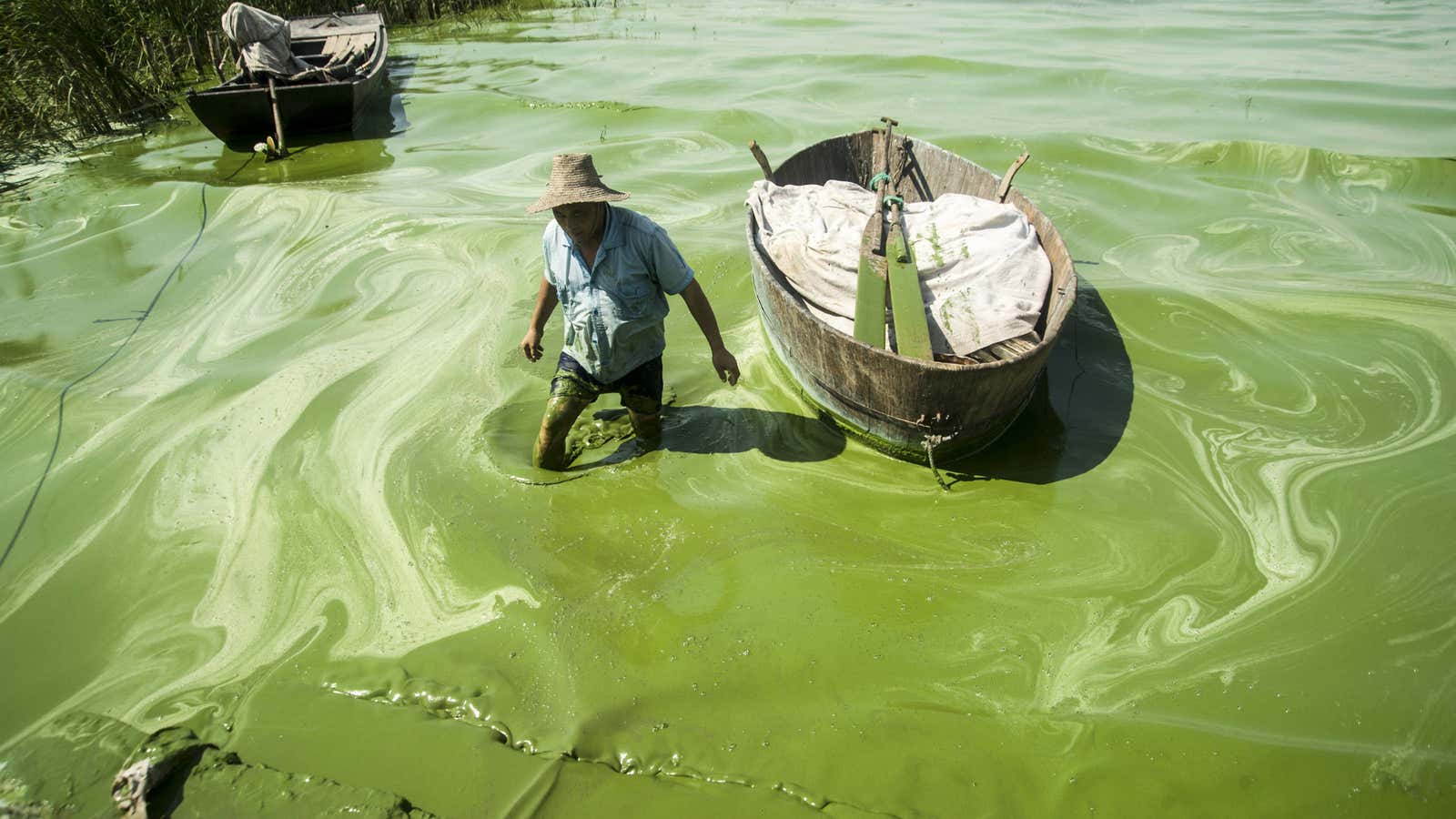Chinese authorities have had trouble fighting the air pollution that is choking urban areas in part because entrenched interests—especially state-controlled industries in industries like energy and automobiles—have lobbied hard against stricter environmental safeguards. But increased attention on toxic soil pollution in the rural areas that the country depends upon for its food supply may prove to be more compelling.
The ability to create jobs, feed its people and keep them more or less healthy are the underpinnings of the Communist Party’s authority. Jobs have always been regarded as far and away the most important of the three, but over the last couple of years, food and health have loomed larger as public and political concerns.
Here are the inescapable facts: Toxic pollution from manufacturing and the overuse of industrial fertilizers have sharply reduced the amount of Chinese land that can be used for farming, according to a long piece in the Wall Street Journal (paywall). According to state-affiliated researchers cited by the Journal, at least 25 million acres (10 million hectares) may be contaminated with heavy metals—that’s 8% of China’s arable land. The Journal reports that such a loss of land would take the country below a “red line” of 296 million acres currently needed to feed the 1.35 billion Chinese.
China is already experiencing short-term crop difficulties, especially a poor harvest blamed on adverse weather that will force the country—the world’s biggest wheat producer—to boost grain imports to their highest level in a decade. If large swathes of Chinese land are tainted for decades by heavy metals like cadmium, it will be even tougher for the country to maintain existing levels of self-sufficiency when it comes to food. That raises the danger of social disruption—the thing that the Communist Party seeks to avoid at all costs—and it may finally provide the impetus China needs to tackle pollution in a serious way.
On July 28, an official with the Ministry of Environmental Protection said the government will spend some $500 billion to clean up the country’s air and water over the next five years. This suggests that the government has begun to see pollution as a national-security issue.
